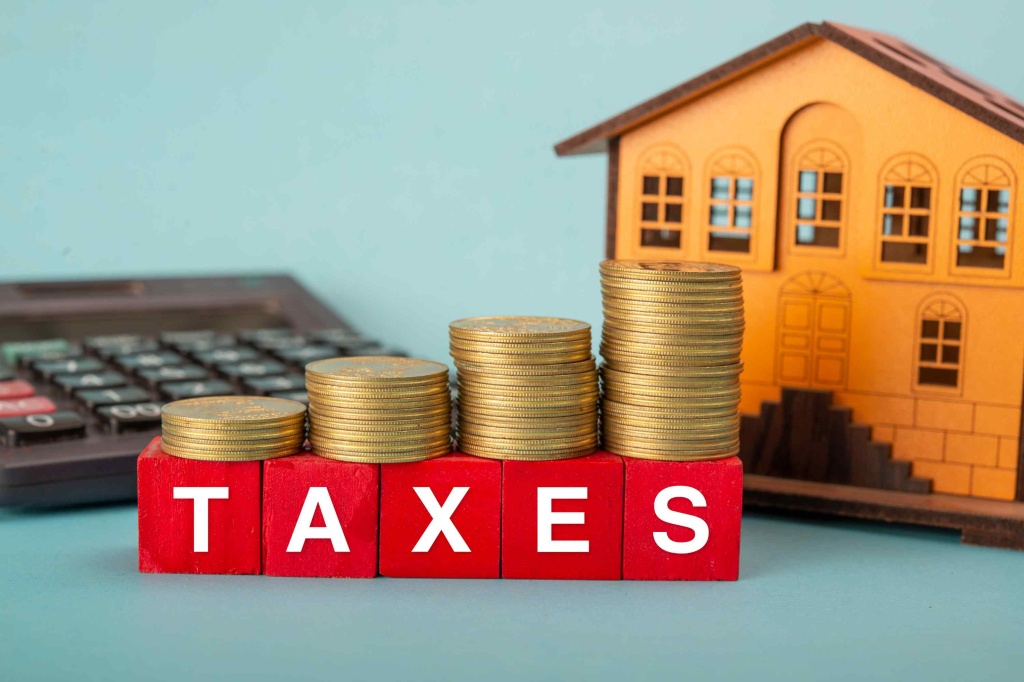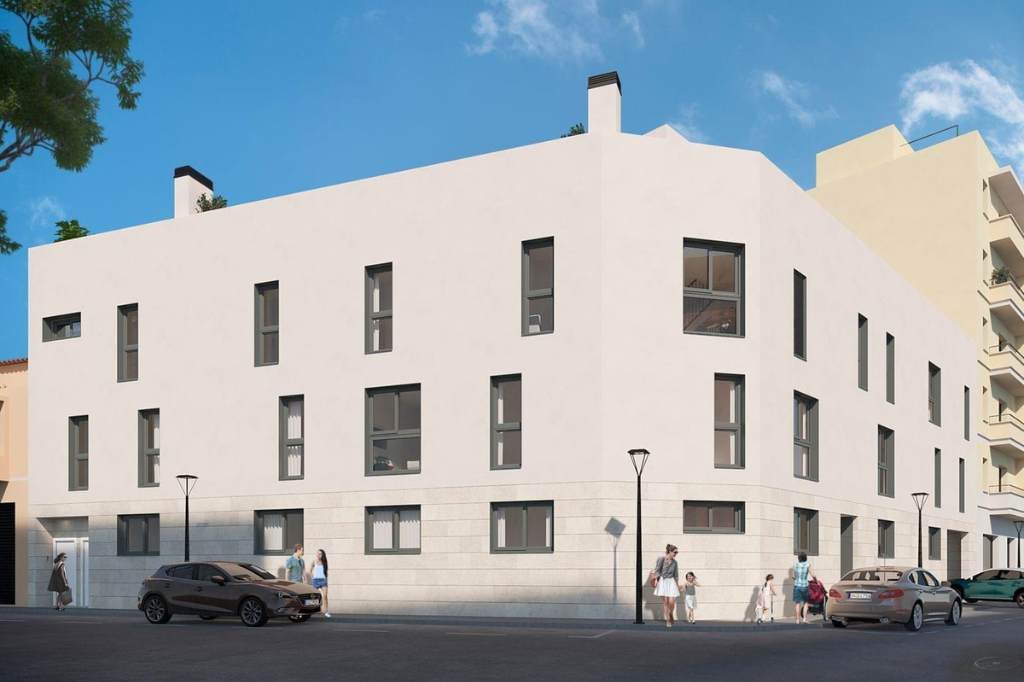Discover What Taxes and Hidden Costs Are Involved When Selling a Property in Mallorca, Spain

In Spain, there are several costs and taxes that you need to be aware of when selling a property. Numerous publications provide information on these expenses and taxes, but to simplify things, we have gathered the latest details on selling real estate. The YES! Mallorca Property article can offer insights into the nuances of tax payments when selling a property in Mallorca.
Contents:
Costs and taxes when selling Spanish property
Expenses before the sale of the property
An example of Plusvalia calculation (Plusvalía)
An example of an income tax calculation for Spanish residents
Ways to avoid capital gains tax on foreign property in Spain
Income tax provision - Retención
An example of how real estate agency fees are calculated in Mallorca
Tax Exemption for Foreign Residents Aged 65 or Older
How to sell a property in Spain with an existing mortgage agreement
Additional expenses to consider when selling property
Selling a property with and without an agency - pros and cons
-
What costs are involved in selling a property in Spain?
-
What are the tax implications of selling a house in Spain?
-
How do I avoid Capital Gains Tax on my property in Spain?
-
What is the non-resident tax when selling property in Spain?
-
How much are notary fees on selling a house in Spain?
-
Who pays notary fees in Spain?
-
How much is the conveyancing fee in Spain?
-
How much is Plusvalia?
-
What is the notary fee in Spain?
Costs and taxes when selling Spanish property
To accurately calculate all potential expenses associated with selling a property in Mallorca, it's essential to comprehend what these costs comprise and what factors influence them.
Expenses before the sale of the property
|
IBI annual property tax |
0,4% - 1,1% |
|
Basura's annual rubbish collection fee |
100 euros - 200 euros |
|
certificado energético |
300 euros |
|
Bank charges |
individually |
|
Pre-sales preparation |
From 500 euros |
|
collection of documents |
From 400 euros |
|
utility bills |
from 300 euros |
|
Tax Plusvalia |
calculated individually |
|
IRPF income tax |
19% to 23% |
|
Agency commission |
4% to 7% |
|
Capital gains reserve Retención |
3% |
|
Attorney's fees (where available)
|
1% |
|
Mortgage cancellation |
200 euros - 350 euros |
|
Notary public |
from 600 euros |
Land Value Added Tax (Plusvalía)
One of the two mandatory taxes that property owners must pay when selling their property in Spain is called Plusvalía. Its purpose is to provide financial support to the municipalities of the Spanish Autonomous Communities, making it the second most crucial aspect of their budget after IBI.
Before October 2021, the cadastral value of the land had to be multiplied by the number of years the property was owned, with an annual coefficient of at most 3.5% applied to this value. The resulting amount was then multiplied by the tax rate of 30%. However, the Plusvalía tax was later abolished by the Spanish Constitutional Court.
Following the abolition, the Spanish government introduced a new tax on land value appreciation with adjustments. The annual coefficient will now have a maximum value depending on the years the owner possessed the property.
Maximum annual coefficient (actual period)
|
Up to one year |
0,14 |
|
One year |
0,13 |
|
Two years |
0,15 |
|
Three years |
0,16 |
|
Four years |
0,17 |
|
Five years |
0,17 |
|
Six years |
0,16 |
|
Seven years |
0,12 |
|
Eight years |
0,10 |
|
Nine years |
0,09 |
|
Ten years |
0,08 |
|
11 years |
0.08 |
|
12 years |
0,08 |
|
13 years |
0,08 |
|
14 years |
0,10 |
|
15 years |
0,12 |
|
16 years |
0,16 |
|
17 years |
0,20 |
|
18 years |
0,26 |
|
19 years |
0,36 |
|
20 years and over |
0,45 |
The annual coefficient changes annually based on market conditions and can be regulated by each municipality. Use the figures from the official website of the ayuntamiento for an accurate calculation.
The tax rate may be adjusted by the municipality (city hall) where the is located property, but may not exceed 30%
The second modification relates to the calculation method for the Plusvalía tax. Suppose the taxpayer can demonstrate that capital gains are lower than those calculated based on the cadastral value. In that case, the existing capital gains may be the basis for the tax calculation.
The third change is that any transaction with a holding period of less than a year is now subject to the Plusvalía tax. However, the taxpayer can dispute the tax if they can prove that the land's value has not increased.
The Plusvalía tax applies in several scenarios, including property sale, real estate donation, and property inheritance. The tax must be paid within 30 days of the property's sale and six months for an inheritance.
Plusvalía tax Calculation
1. The cadastral value of land or capital gains (the lowest value is chosen)
2. Annual coefficient*. It may vary depending on the ayuntamiento.
3. The tax rate ranges from 24% to 30%*. Sets by ayuntamiento
* number of years of ownership
An example of Plusvalia calculation:
year of acquisition: 2017
price at the time of purchase is 300,000 euros.
year of sale 2022
sale price 450,000 euros.
The capital gain is €150,000.
The holding period is six years. Apply a coefficient of 0.16%
At the time of sale, the cadastral value is 100,000 euros.
In this case, 60% is the value of the land, and 40% is the value of the building according to the cadastre.
The taxable base of "real" capital gains: 150,000 euros * 60% = 90,000 euros
The taxable base of cadastral capital gains: 100,000 * 60% * 0.16 = €9,600
The taxable base for Plusvalía will be €9,600 as this is the lower value.
The amount of tax on the sale will be €9,600 * 30% = €2,880.
TIP: The cadastral value of land can be found on the last IBI tax receipt or at the cadastral office of the municipality.
Capital gains tax (CGT)
The second tax that applies when selling a property is the capital gains tax. This tax is calculated based on the difference between the purchase and sale amounts, meaning it's charged only if the property's value at the time of sale is higher than its initial purchase price.
It's worth noting that there is a difference in how this tax is paid between residents and non-residents of Spain.
|
Non-residents |
Residents |
|---|---|
|
Fixed-rate 19% |
The tax rate is calculated based on the amount of capital gains. < 6,000 € 19% rate 6,001 € - 50,000 € 21% rate 50,001 € < 23% rate |
It's essential to note that as a resident of Spain, you must provide the required documentation to prove your legal presence in the country at the time of the property sale. You may need to submit your tax returns for the past three years, a deed of sale in your name at least three years old, or a certificate from the municipality verifying your registration in Spain for the previous three years.
For Spanish residents, the capital gains tax applies to the income tax return for the following year, after the year the property was sold.
Note: Property acquired before 1986 in Spain is not subject to capital gains tax for residents and non-residents.
An example of an income tax calculation for Spanish residents:
House bought in 2015 for €1,000,000
Sold in 2021 for €1,500,000
Income was €1,500,000 - €1,000,000 = €500,000 (taxable base)
The IRPF will be €500,000 * 23%= €115,000.
IRPF Tax Exemptions:
Several IRPF tax exemptions apply when selling a property in Spain. These include:
-
Reinvesting the proceeds to purchase a new property for the primary residence.
-
Tax exemptions for individuals over 65 years old.
-
Exemptions for dependents who are unable to support themselves.
-
Paying off mortgage debt.
Here are some ways to avoid capital gains tax on foreign property in Spain:
1. If you have receipts for complete or partial renovations of the property, you can deduct the renovation amount from the IRPF tax.
2. The agent's fees and confirmed payment of ancillary expenses related to the property sale can also be deducted from the IRPF tax.
3. If the property's market value falls, you can request a capital gains tax refund. However, this process can be complicated, and it is recommended to seek help from lawyers specialising in tax refund matters.
4. Suppose you purchase a new property in an EU country or a country that is part of the European Economic Area, which will be your primary residence for the next two years after the sale of the foreign property. In that case, you are entitled to a tax allowance.
Income tax provision - Retención
This type of tax only applies to property sellers who are not fiscal residents of Spain. The purpose of this levy is to make sure that the foreign seller does not miss gets all the
REFERENCE:
According to the Spanish Supreme Court, a tax resident is any person who resides in Spain for more than 183 days per year. The only legitimate proof of fiscal residence status is the certificate issued by the Spanish tax authorities.
The Retención surcharge means that when a foreign seller sells a property, 3% of the selling price is withheld at the time of sale. This fee is payable when the notary signs the sale deed.
As a result, the foreign seller only receives 97% of the sale price at the time of purchase. If the capital gain is not confirmed, the seller can request a refund of the 3% withheld within three months of the sale of the property.
IBI Annual Property Tax
Another property tax is imposed on properties in Mallorca and throughout Spain, known as the IBI tax. The property owner is responsible for calculating and paying this tax annually, due on 1 January of the current year. The tax base for calculation is the property's cadastral value as determined by the relevant municipality on 1 January of the reporting period.
The IBI property tax rate is generally considered low because the cadastral value is typically lower than the actual value. In Mallorca, the average IBI tax rate is 0.5%, while in Spain, it ranges from 0.4% to 1.2%. In the year of the property's sale, the responsibility for paying the IBI tax rests with the person who was the actual owner of the property on 1 January and must be paid at the time of sale for the current year.
Bank charges
After the sale of a property, the owner is given a bank cheque for the sale amount minus any expenses incurred, such as income tax and agency fees. In Spain, the currency of the bank cheque is the euro. If the seller is a citizen of a country with a different official money, they must open an account with a Spanish bank to receive the payment conveniently.
It is essential to check the bank charges for transfers and the conversion rates when transferring money from Spanish banks to other countries. Other options may be more profitable, such as using online currency conversion platforms or stock exchanges to transfer funds, especially for UK citizens. However, in addition to the exchange rate, the transfer amount, shortest translation times, and transaction fees should also be considered when choosing the best option.
YES! Mallorca Property offers various strategies for our clients to transfer their funds profitably.
Real estate agency fees
In Mallorca and other Spanish regions, the seller is responsible for paying the agent's fee. This differs from most other EU countries, where the buyer pays the agent's fee.
The standard commission rate for a real estate agent on the island is 5% of the sale price, but this percentage can be negotiated. It may vary depending on several factors, including:
|
Exclusive contract |
The agency commission may be increased to 6% or 7%. In such cases, a professional company will design a personalised marketing strategy to sell your property and establish a clear timeline for execution. Typically, such agreements are signed for a maximum of three months. |
|
5% commission |
A regular estate agency contract. The owner can apply to several agencies or even handle the sale themselves. |
|
The rate is less than 5% |
Be careful. If you are promised a below-market rate, it is worth enquiring about the company's reputation and how long it has been on the market. Young companies often lure clients in this way. |
Remember that the agency fee is subject to Value Added Tax (VAT), 21% of the total amount.
Here is an example of how real estate agency fees are calculated in Mallorca:
If the sale price of an apartment is 600,000 euros, the agency commission will be 5% of 600,000 euros plus 5% of 600,000 euros multiplied by the VAT rate of 21%.
Thus, the agency fee would be 600,000 euros * 5% + (600,000 euros * 5% * 21%) = 36,300 euros.
Energy Certificate
When selling a property, it is mandatory to present a valid energy certificate. If the property being sold is a new building, the certificate is valid for up to five years from the date of sale and does not need to be renewed. However, in other cases, the certificate must be obtained before the sale occurs. The cost of getting the certificate ranges from 200 to 1000 euros, depending on the property type.
A qualified surveyor, architect or building engineer must issue the energy certificate. Failure to provide the certificate at the time of sale can result in penalties exceeding several times the cost of obtaining the certificate.
Tax Exemption for Foreign Residents Aged 65 or Older
Some foreign residents may be eligible for a capital gains tax exemption when selling their property in Spain.
To qualify for the tax relief, the following conditions must be met:
-
The seller must have legally resided in Spain for more than three years.
-
The property being sold must be the seller's primary residence.
-
The seller must be aged 65 or older.
-
However, if the seller leaves Spain for permanent residence in another country after selling the property, a capital gains allowance of 3% will be deducted. The deduction can be recovered by submitting a tax return for the following year after the sale of the property.
It's worth noting that according to Spanish law, an owner who has reached the age of 65 at the time of sale cannot sell their property without guaranteeing they will move into a new home. Therefore, at the time of the deal, the seller must have either a signed option agreement to purchase a new property, a lease agreement for a property with a possible extension, or an existing property in their possession.
How to sell a property in Spain with an existing mortgage agreement
Selling a property in Mallorca with an existing mortgage agreement requires immediate attention to the mortgage. It is the seller's sole responsibility to cancel the mortgage in the Land Registry, even if they have a document from the bank confirming the mortgage's closure.
Early repayment fees for mortgage cancellation may vary depending on the stage of the mortgage closing. Generally, the cost is not more than 0.5% to 1% of the debt at the time of repayment.
Cancellation fees at the Land Registry may also vary based on the property's type and value, usually 200 euros to 350 euros.
Additional expenses to consider when selling a property
When selling a property in Mallorca, there are additional costs to keep in mind, including community and utility bills.
|
Expense |
Price |
|---|---|
|
Pre-sales repair |
depending on the changes required |
|
A complete cleaning before the photoshoot |
40 euros -100 euros |
|
Maintenance of the garden, if there is one |
between 100 euros and 300 euros |
|
Cleaning before handing over the keys to the new owner, if so agreed |
12 euros per hour |
|
Transport company services if the property is being sold without furniture |
12 Cham - 15 euros per hour |
Yes! Mallorca Property suggests preparing your property for sale with home staging, which can increase its value by up to 20%.
Before signing the sale at the notary's office, the seller must provide a Certificado de Comunidad, confirming that they are not in arrears with utility bills. This certificate costs 20 euros, and all necessary payments must be made before receiving it.
Another cost to consider is property advertising. To sell your property quickly and profitably, you must post high-quality photos and videos on local and foreign portals. If you sell through a real estate agency, they will typically cover the cost of a professional photographer and all advertising expenses. Serious agencies have premium accounts on significant portals, ensuring your property is prominently featured and attracts many buyers.
Lastly, when selling a property, a double deposit may be required. The seller and buyer first sign an "option contract," which includes a clause holding the seller liable to the buyer. If the owner changes their mind about selling the property, they are obliged to double the amount of the deposit received by the buyer.
Selling a property with and without an agency - pros and cons
With a real estate agency
|
Benefits |
Ddisadvantages |
|---|---|
|
1. Knowledge of Spanish tax law 2. Free advice on payments and taxes 3. Professional photos and videos of your property 4. Premium advertising in the world's top property portals 5. Own customer base 6. Navigating and conducting online displays 7. Assistance in organising pre-sales preparation 8. Support of the sale before and after the signing of the deed of sale at the notary. 9. Help with certificates and certificates. |
1. You must choose the real estate agency you want to work with. 2. The seller pays the agent's fee. |
Without a real estate agency
|
Benefits |
Disadvantages |
|---|---|
|
1. There is no need to choose a real estate agency. |
1. you need to sort out your tax payments 2. the cost of a lawyer to calculate tax payments. 3. Independent search for specialists to prepare the property for sale. 4. the services of a professional photographer 5. Self-posting on real estate portals 6. Collect all certificates and certificates yourself. 7. Always a long sale 8. The need to attend all shows in person. 9. Additional costs and unnecessary payments. |
In conclusion, partnering with a professional real estate agent can save you the trouble of dealing with the complexities of taxes and selling expenses.
Would you like to sell your property? A team of specialists with years of experience in different areas will help you get the best deal for your home.
At Yes! Our team of experienced professionals, Mallorca Property, can provide expert guidance and assistance throughout the process. With our extensive knowledge and negotiation skills, we can help you avoid costly mistakes and ensure a smooth and stress-free selling experience for your property in Mallorca.
Contact us today to discuss your property!
FAQ
1. What costs are involved in selling a property in Spain?
When selling a property in Spain, various costs need to be considered, including real estate agency fees, legal fees, notary fees, and taxes.
2. What are the tax implications of selling a house in Spain?
Selling a house in Spain can have tax implications, such as capital gains and non-resident tax. It is essential to consult a tax advisor to understand the tax obligations related to selling a property.
3. How do I avoid Capital Gains Tax on my property in Spain?
There are several ways to potentially reduce or avoid Capital Gains Tax when selling a property in Spain, such as reinvesting the profits in another property or using certain deductions. It is recommended to seek advice from a tax specialist to explore these options.
4. What is the non-resident tax when selling property in Spain?
Non-resident tax is a tax that must be paid by non-Spanish residents who own property in Spain. When selling a property, non-resident owners must pay a withholding tax of 3% of the sale price, which can be offset against the final tax bill.
5. How much are the notary fees for selling a house in Spain?
Notary fees for selling a house in Spain vary depending on the sale price and the complexity of the transaction. Typically, notary fees range from 0.1% to 0.5% of the sale price.
6. Who pays notary fees in Spain?
The buyer in Spain typically pays the notary fees, although it is negotiable between the buyer and seller.
7. How much is the conveyancing fee in Spain?
Conveyancing fees in Spain vary depending on the complexity of the transaction and the services required. Generally, the cost can range from 1% to 2% of the sale price.
8. How much is Plusvalia?
Plusvalia is a local tax in Spain based on the increase in the value of the land where the property is located. The amount of the tax is determined by the local government and is calculated based on various factors such as the length of ownership and the property's value.
9. What is a notary fee in Spain?
The notary fee in Spain is a fee charged by the notary for their services in overseeing the transaction and preparing the relevant documentation. The cost varies depending on the complexity of the trade and is typically paid by the buyer.
You might also like
Mallorca Property Prices & Market Report
Guide for Buying Real Estate in Majorca: process and taxes explained.



